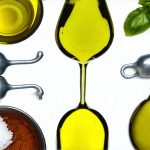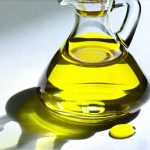Diarrhea is rarely something we welcome into our lives. It’s uncomfortable, disruptive, and often accompanied by anxiety about where the nearest restroom might be. When it appears seemingly out of the blue, especially after a seemingly innocuous change like switching cooking oils, it can feel particularly baffling. Many people report experiencing digestive upset – including diarrhea – after altering their dietary fat sources, leading to questions about sensitivities, absorption issues, and the impact these fats have on our gut health. It’s important to remember that the human digestive system is incredibly complex, and even small changes can sometimes trigger unexpected reactions. This article will explore why a change in cooking oil might lead to diarrhea spikes, examining potential causes and offering insights into how to navigate this frustrating situation.
The connection between diet and digestion is undeniable. Cooking oils, while often viewed as neutral components of food preparation, are significant sources of fat – a macronutrient that requires specific digestive processes to break down and absorb effectively. Different fats are digested differently, and our individual tolerance levels vary widely. A sudden switch in the type of fat consumed can overwhelm the system, leading to symptoms like bloating, gas, cramping, and ultimately, diarrhea. Furthermore, underlying sensitivities or pre-existing gut conditions can be exacerbated by changes in dietary fat, making it difficult to pinpoint the exact cause without careful consideration. It’s rarely about the oil itself being “bad,” but rather how our bodies respond to its specific characteristics when introduced – or reintroduced – into our diet. Understanding what you can learn from testing after switching diets is crucial during dietary changes.
Understanding Fats and Digestion
Fats are not a monolithic entity; they come in many forms, each with unique chemical structures and properties. These differences impact how effectively we digest them. Broadly categorized, fats fall into: – Saturated fats found in sources like coconut oil and butter – generally more stable at high temperatures but sometimes harder to digest in large quantities. – Unsaturated fats, including monounsaturated (olive oil, avocado oil) and polyunsaturated (sunflower oil, flaxseed oil). Polyunsaturated fats further break down into omega-3 and omega-6 fatty acids, with varying effects on inflammation. – Trans fats which are largely artificial and best avoided due to health concerns. The digestive process begins in the mouth with minimal fat breakdown, then moves to the stomach where some initial emulsification occurs. However, the bulk of fat digestion happens in the small intestine with the help of bile (produced by the liver) and pancreatic enzymes called lipases. These enzymes break down fats into smaller molecules that can be absorbed through the intestinal wall.
A sudden change in cooking oil introduces a new type of fat molecule to this process. If your body isn’t accustomed to efficiently digesting it, several things can happen. The undigested fat can draw water into the colon, leading to diarrhea. It can also ferment in the gut, causing gas and bloating. In individuals with pre-existing conditions like Irritable Bowel Syndrome (IBS) or gallbladder issues, these effects can be amplified. Even seemingly “healthy” oils can cause problems if introduced too quickly or in excessive amounts. For example, a rapid increase in polyunsaturated fat intake could contribute to inflammation in some individuals, further disrupting gut function. It is also important to consider the source of the oil and its purity; refined oils often contain additives or processing residues that may irritate the digestive system. Choosing best cooking oils for gas-free meals can help minimize discomfort.
Possible Culprits: Specific Oils and Their Impact
Certain cooking oils are more likely than others to cause digestive upset in susceptible individuals. Coconut oil, despite its rising popularity, contains a high proportion of medium-chain triglycerides (MCTs). While MCTs can be beneficial for some, they can also have a laxative effect if consumed in large quantities or by those not accustomed to them. Similarly, flaxseed oil is rich in omega-3 fatty acids, which are excellent for health but can sometimes trigger diarrhea due to their potent effects on gut motility. Sunflower and other seed oils are high in linoleic acid (an omega-6 fatty acid) and while necessary, an imbalance between omega-3 and omega-6 intake can contribute to inflammation and digestive problems.
Beyond the type of fat, it’s crucial to consider how the oil is processed. Highly refined oils often lack natural vitamins and antioxidants, potentially making them harder to digest. Cold-pressed or expeller-pressed oils retain more nutrients and are generally gentler on the gut. Also, some individuals may have sensitivities to specific compounds found in certain oils – for example, a sensitivity to phytosterols present in plant-based oils. It’s worth noting that even organic oils can cause issues if your body doesn’t tolerate them well; organic simply means they are grown without synthetic pesticides, not necessarily that they are easier to digest. Understanding can certain cooking oils aggravate gas symptoms is key for sensitive individuals.
The Role of Bile and Gallbladder Function
The gallbladder plays a critical role in fat digestion. It stores bile, which is essential for emulsifying fats – breaking them down into smaller droplets so lipases can work effectively. If your gallbladder isn’t functioning optimally (due to gallstones, inflammation, or removal), it may struggle to produce enough bile to digest the new type of fat introduced by the cooking oil change. This leads to malabsorption and subsequent diarrhea. Symptoms of gallbladder dysfunction often include: – Pain in the upper right abdomen – Nausea and vomiting – Bloating and gas – Diarrhea (especially after fatty meals)
Furthermore, even if your gallbladder is functioning normally, a sudden increase in fat intake can overwhelm its capacity. Your body needs time to adapt to higher levels of fat digestion. The same applies when switching from one type of fat to another; the digestive system needs to adjust to effectively processing the new molecular structure. This adaptation period explains why diarrhea often occurs immediately after the oil switch but may subside over time as the body adjusts. If you suspect gallbladder issues, consulting a healthcare professional is crucial for proper diagnosis and management. How certain cooking oils make reflux symptoms worse can also impact digestive health.
What To Do When Diarrhea Strikes After an Oil Change
If you experience diarrhea after switching cooking oils, here’s a step-by-step approach: 1. Stop using the new oil immediately. Revert to your previous oil or a bland alternative like olive oil, which is generally well-tolerated. 2. Focus on a bland diet for a few days – think boiled potatoes, rice, bananas, and toast (the BRAT diet). Avoid fatty foods, dairy, caffeine, alcohol, and spicy foods. 3. Stay hydrated by drinking plenty of water or electrolyte solutions. Diarrhea can quickly lead to dehydration. 4. Consider probiotics. These beneficial bacteria can help restore the balance of gut flora disrupted by diarrhea. Look for strains like Lactobacillus and Bifidobacterium. 5. If symptoms persist beyond a few days, worsen significantly, or are accompanied by fever, blood in your stool, or severe abdominal pain, consult a healthcare professional to rule out other potential causes and receive appropriate treatment. It can also be helpful to understand why you might feel bloated after switching to veganism if changing your diet substantially.
Ultimately, the key is careful observation and mindful reintroduction. When you feel ready to try incorporating the new oil again, do so gradually – start with very small amounts and monitor your body’s reaction closely. Food journaling can be incredibly helpful for identifying triggers and tracking symptoms. Remember that everyone’s digestive system is unique; what works for one person may not work for another. Paying attention to your body’s signals is the most effective way to navigate dietary changes and maintain optimal gut health. Don’t hesitate to seek professional guidance if you have concerns or persistent issues. Consider top cooking oils that are safe for acid reflux diets for a gentler approach. Finally, remember that what you can learn from testing after switching diets is valuable information to help tailor your diet.


















